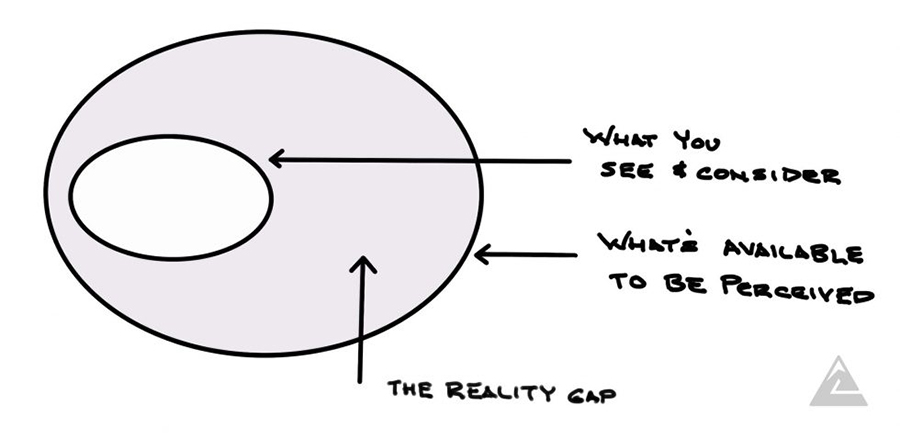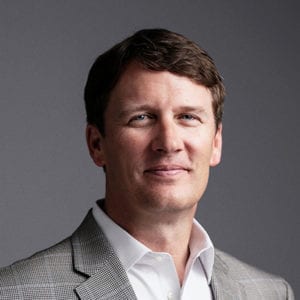Most of the CEOs I know are confronting the toughest leadership test they have ever faced — getting their business back to normal in an environment that is anything but normal.
I empathize with leaders who want to restore what was, but the reality is that getting back to normal is not enough. If CEOs are honest with themselves, their previous trajectory was far from what it could be.
Instead, the more significant test of your leadership will be unlocking new growth by finding truly novel ways forward to include designing new actions that are more impactful than those produced by your competitors.
As a three-time business leader and CEO, I’ve been in the trenches, like you, and in my efforts to transform organizations, I’ve learned some invaluable lessons. One of the most meaningful being — it is a losing strategy to attempt to succeed tomorrow with yesterday’s thinking and doing.
Yet overwhelmed leaders continue to double-down on what they know — driving hard and demanding more. Even in the face of unsatisfying results, these leaders continue to defend their current choices, convinced they are on the right path.
In a world that is demonstrably different today than it was even a year ago, doubling down on what’s worked in the past is not only unsustainable, it represents a failure to learn and adapt. Leaders who refuse to quit using obsolete strategies will find their businesses increasingly marginalized and struggling to compete.
Meaningful Change Is Hard
Despite good intentions, meaningful change is hard, but not for the reason leaders think.
As a leader, it might be tough to hear and accept at first, but the cause of most of your difficulties is:
- Your inability to completely see and objectively assess what’s really going on, and
- How what you believe to be true invisibly alters and profoundly limits: the possibilities you consider, the decisions you make, and the actions you take.
I encourage you to reflect on and recognize the significance of this profound truth — your results are a perfect reflection of how effectively you can interpret the information you can see (versus what’s available to be perceived) and how you choose to act on that information.
Until you accept this truth and take steps to see more clearly, you will not be able to fully exploit the opportunities to fulfill your intentions with greater precision and ease. Instead, any time your results don’t match your expectations, your incomplete understanding of what is really happening will continue to compromise your thinking, keeping superior alternatives out of view. Until you become aware of what’s available, you will continue to fall back on legacy strategies when responding to setbacks.
Conventional leaders rarely examine whether their beliefs are effectively guiding them in seeing and seizing opportunities to fulfill their intentions. This often results in leaders unconsciously falling into patterns of more effort on already compromised perceptions.
What The Extraordinary Do Instead
Breaking the habit of responding to situations based on past experiences requires new ways of perceiving and interpreting. While conventional leaders often believe their outcomes are a result of factors outside their control (e.g., other people’s shortfalls, the marketplace), conscious leaders believe they are responsible and take ownership for outcomes.

This single difference in perspective creates an entirely different action cycle in the face of disappointment. Rather than let blame past experiences and expectations cut them off from the learning opportunity each disappointment presents, they seize the opportunity to improve.
Extraordinary leaders understand what few leaders do – that the quality and sophistication of their mental representations enables them to recognize and respond more quickly and effectively, distinguishing their performance from lesser developed peers.
These conscious leaders have trained their minds to see the world more accurately through years of more deliberate thinking. Rather than being consumed by busyness, they invest time rigorously identifying and evaluating their errors when faced with unwanted outcomes. Their approach stands in sharp contrast to the vague, unfocused, and surface-level analysis of average leaders whose action bias undervalues and neglects appropriate inquiry.
Each difficulty becomes an opportunity for these higher-functioning leaders to add more dimension, subtlety, and nuance to their understanding of what is occurring. They recognize that the more they can learn to make objectively accurate assessments, the more likely they are to perceive promising possibilities that were previously invisible. And with improved perception, there is a greater possibility to enact better decisions and design more precise actions for achieving what they want. A virtuous cycle that steadily accumulates and increases the power of their choices.
There’s another side benefit to this more developed and sophisticated thinking. The earnestness to understand what is real, including seeking the perspectives from teams directly engaged in the work, raises collective confidence, motivation, and commitment from the people who will enact the choices. Including and allowing others to shape their thinking produces a self-reinforcing cycle of more thoughtful and committed action from their teams. After all, without motivated and committed implementation, even the best ideas can fall short.
Summary
It’s easy to give lip service to using thwarted intentions and setbacks as opportunities to learn and adapt. In my work with boards, leaders, and teams, I regularly see stakeholders exclaim the virtues of after-action learning but rarely witness conversations that are anything more than surface-level explorations that frequently degrade into judgment and blame, wherein the opportunity for meaningful learning is lost. The robust inquiries that would improve leaders’ clarity remain mostly absent.
If leaders are to become higher-functioning over time, they must level-up their clarity, understanding and insight to enact more powerful choices. Doing so will inform better decisions, more potent actions, and better ability to fulfill their intentions.




































